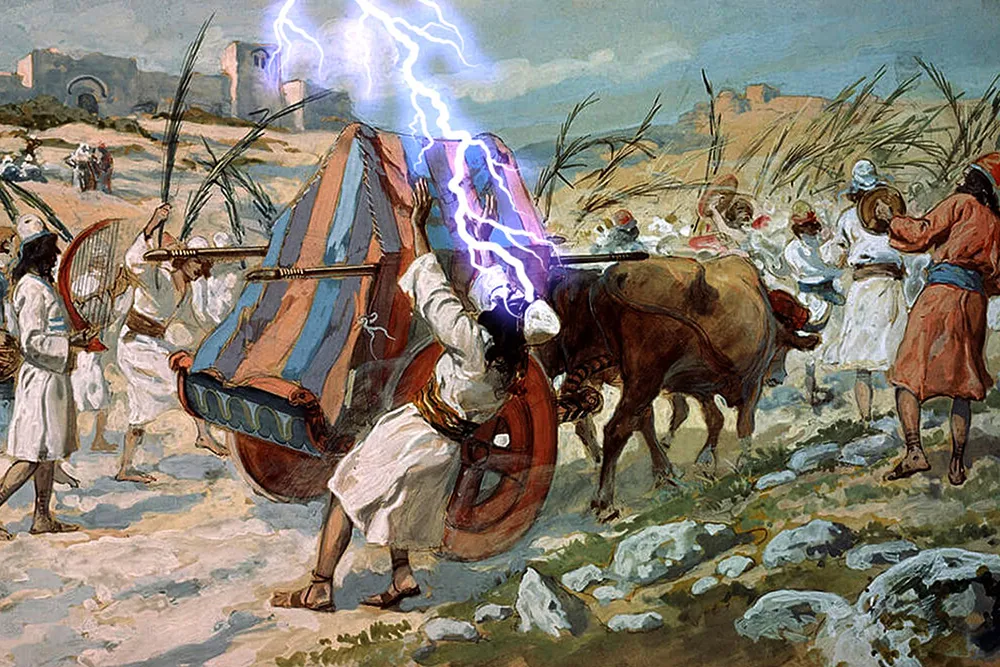By Pr Isaiah White
A donkey and a dog were left to guard a house. When a thief tried to break in, the dog did not bark. The donkey, however, brayed loudly to scare the thief away. When the owner woke and discovered the commotion, he beat the donkey for making noise and disturbing his sleep. The moral is clear: do not interfere in the responsibilities of others or take on duties that are not yours, as it may lead to unintended consequences.
In life, it is important to know what to do, who should do it, when it should be done and how it should be carried out. Such knowledge is not merely about “minding your business” in a casual sense, but about recognising the ethical thing to do. While the donkey had good intentions, its actions were misunderstood by the farmer, and it was punished.
Text
“So, they brought it with the ark of God from the house of Abinadab, which was on the hill; and Ahio was walking ahead of the ark. Meanwhile, David and all the house of Israel were celebrating before the LORD with all kinds of instruments made of fir wood, and with lyres, harps, tambourines, castanets and cymbals. But when they came to the threshing floor of Nacon, Uzzah reached out toward the ark of God and took hold of it, for the oxen nearly upset it. And the anger of the LORD burned against Uzzah, and God struck him down there for his irreverence; and he died there by the ark of God. And David became angry because of the LORD’s outburst against Uzzah, and that place is called Perez-uzzah to this day” (2 Samuel 6:4–8).
The core ethical lesson in the story of Uzzah is not about “minding your business” in the neighbourly sense of avoiding gossip or nosiness. Rather, it is about recognising and respecting divinely established boundaries and roles.
The culmination
Uzzah’s death was not caused only by the single act of touching the Ark. It was the climax of a series of disobedient actions. The first error lay in transporting the Ark on a cart at all, a method borrowed from the pagan Philistines (1 Samuel 6:7), instead of following God’s specific instructions. Later, David acknowledged this failure (1 Chronicles 15:13–15). Uzzah’s touch was therefore the final, fatal symptom of a broader disregard for God’s law.
Sacred boundaries
The Ark of the Covenant was not simply a religious artefact; it was the earthly throne of the holy and invisible God of Israel. It was to be approached only in the prescribed way, by the Kohathite Levites, and never to be touched directly. Uzzah’s action, though seemingly helpful, was a violation of a direct command (Numbers 4:15). The lesson is clear: when we overstep sacred boundaries—even with good intentions—we reduce God’s holiness to something common, something we think needs our management.
The danger of familiarity
Uzzah was the son of Abinadab, in whose house the Ark had remained for decades (1 Samuel 7:1). Having grown up around it, he may have lost the reverence it deserved. Familiarity likely bred casualness. The ethical warning is that when we become too accustomed to holy things, we risk losing the awe they command, and we may begin to treat them lightly.
Not God’s handlers
Minding your business means staying in your lane. Spiritually and communally, it means operating within the responsibilities God has given you. Uzzah’s “business” was not to steady the Ark. That was God’s business. The underlying lesson is that we must trust God to preserve His holiness and His glory. We are not God’s handlers; we are His servants.
When right is wrong
This raises the central question: when does the right thing become the wrong thing? The biblical event of Uzzah provides a framework:
- When it violates a clear principle or commandment. Uzzah’s intention was good, but his action contradicted God’s command. Ethics must rest on obedience, not convenience.
- When it arises from presumption rather than faith. Uzzah assumed that his hand was cleaner than the ground. He acted as if God needed his help, rather than trusting the God who gave the instructions.
- When it prioritises outcomes over obedience. Uzzah chose to save the Ark physically, but in doing so compromised his relational standing with God. In God’s sight, how we do His work matters as much as what we do.
Conclusion
The story of Uzzah is a sobering reminder that God values obedience above sacrifice, and reverence above good intentions. It challenges the modern assumption that intention is everything. The truth is that good motives, if divorced from divine instruction, can bring grave consequences.
The donkey brayed to protect the house; Uzzah reached to steady the Ark. Both acted with noble motives, but both paid dearly. Their stories remind us that the right thing, done in the wrong way or outside God’s will, can indeed become the wrong thing to do.





